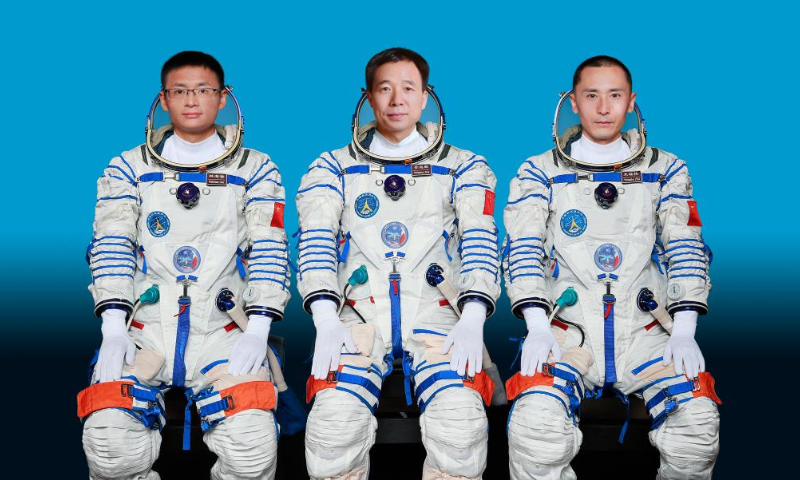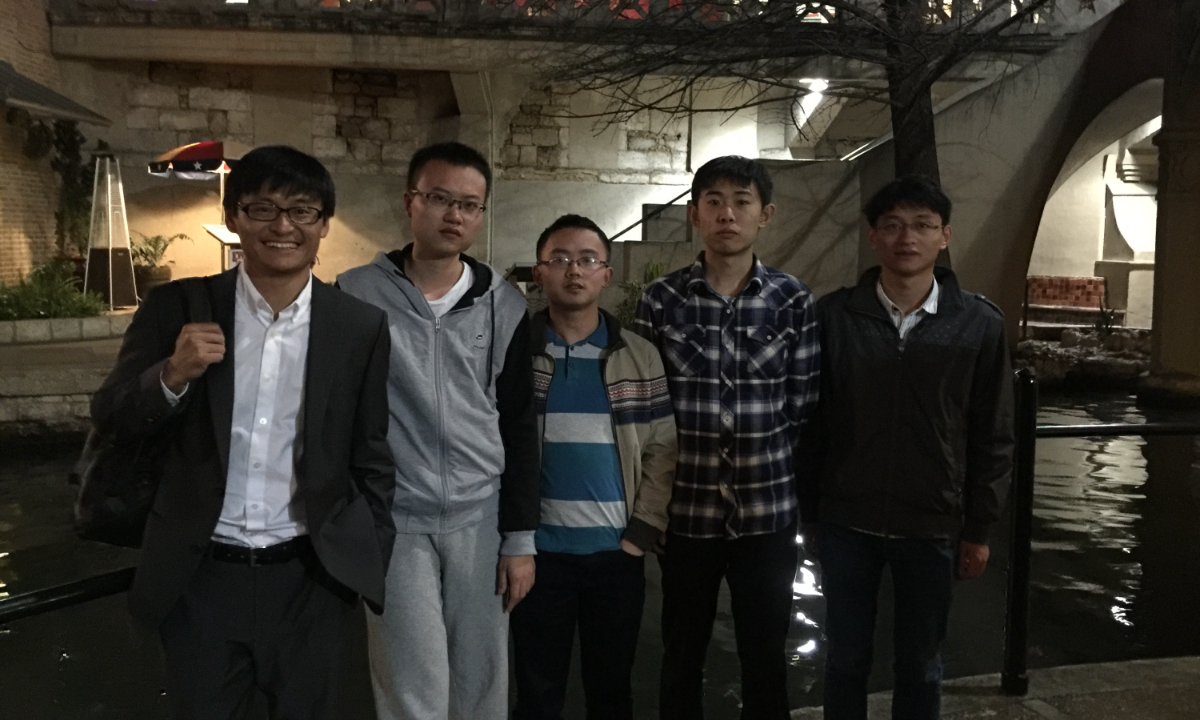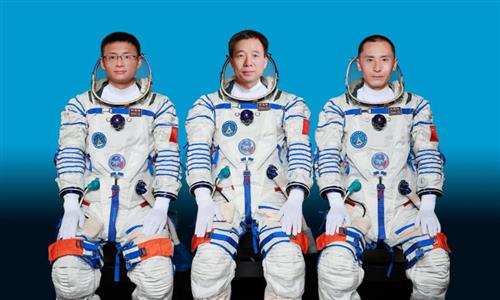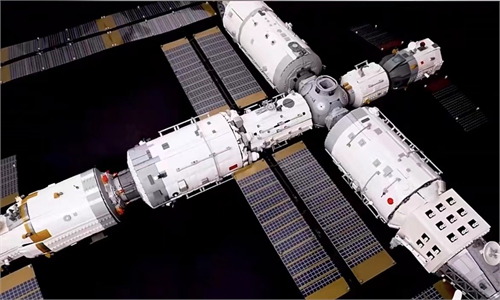China's first civilian taikonaut ignites young generation's dreams of space and beyond

This undated photo shows Chinese taikonauts Jing Haipeng (center), Zhu Yangzhu (right) and Gui Haichao (left) who will carry out the Shenzhou-16 spaceflight mission. Photo: Xinhua
"My home is right next to the high school where he studied, and our kitchen faces the small room where he lived during his high school years. Every evening during dinner, I could hear him reciting and reading aloud. Through that window, I didn't know what I saw was a glimpse of a future astronaut."
A comment left by a netizen recalling a neighboring boy from childhood on China's Twitter-like Sina Weibo has gone viral in China, with many having witnessed the epic trip that the boy - Gui Haichao - made to space.
Gui is China's first civilian taikonaut, and the first payload expert who traveled to the China Space Station. He was part of the Shenzhou-16 team that went to the space station on May 30 and will stay there for about half a year doing various space science experiments and extravehicular activities.
Gui's life experience can be described as "ordinary, hard-working but legendary." The ordinary life is just like everybody else's, but later proved to be legendary thanks to his hard work. He was the top scorer in the science stream in the county-level college entrance examination, and went on to complete his bachelor's, master's, and doctoral degrees at Beihang University. After completing his postdoctoral studies overseas, he became a doctoral supervisor at the age of 31, and later became a professor at Beihang University. Now, he has fulfilled his dream of space travel and become China's first payload specialist to enter space.
Gui's story has touched many people's hearts. He has become an idol for countless children and a benchmark for many young people striving for success. The pair of glasses that Gui wore to space, which was also one of a kind as no taikonaut had worn them before, also became a source of inspiration for many schoolchildren, igniting their dreams.
"When Jing Haipeng was onboard the Shenzhou-7 spaceship in September 2008, I was still a university student. I watched the live broadcast of our nation's first spacewalk carried out by the Shenzhou-7 crew," Gui said during an interview at the Astronaut Center of China in Beijing before heading to the Jiuquan Satellite Launch Center for his maiden flight.
"I just couldn't even imagine at that time that I would become a colleague of his and train and live in the same place. And now I am a taikonaut in his crew and we will fly together to the space station," said Gui.
Dang Qingqing, an assistant professor of Aerospace Engineering, who is an apprentice and friend of Gui, told the Global Times that although he knew early that Gui had been selected as a taikonaut, he was still incredibly moved when it was officially announced that he would be the country's first payload specialist to board the Chinese Space Station. "The years of dedication and anticipation have finally paid off, and I am genuinely happy for him," Dang said.
He shared with the Global Times his encounter with Gui during college years, when Gui's rigorous academic attitude, witty approach to matters, and positive outlook on life left a deep impression.

Group photo of Dang Qingqing (left 2) and Gui Haichao (left) during 27th AAS/AIAA Flight Dynamics Conference in San Antonio, US in 2017. Photo: Courtesy of Dang Qingqing
Dang first met Gui at the American Aerospace Dynamics Conference in February 2017. Although they only spent a few days together, Gui took Dang out for drives and sightseeing, and introduced him to "celebrities" in the industry.
What deeply touched Dang was when Gui selflessly stepped up to help with Dang's paper when he was having difficulties. Even though Dang's paper didn't include Gui's name, he didn't mind and carefully revised the paper, and taught Dang how to respond to the reviewers' comments.
In the summer of 2017, Gui returned to Beihang University and formally joined Dang's research group. He officially became Dang's "mentor," and Dang became Gui's first student. Upon Dang's graduation, Gui squeezed time to attend his graduation, and gave him a cup as a graduation gift. "Although he didn't say much, I understood."
"I used to avoid new things. Under Gui's guidance and encouragement, I was able to actively step out of my comfort zone, dare to face challenges, and try things I'm not good at," Dang recalled.
Four years after graduation, they still have contact from time to time. Now that Dang has become a teacher himself, he always thinks about what Gui would do when facing problems and tries to emulate his approach. "Some say that every PhD student carries a deep imprint from their mentor. That was certainly the case for me, and I am proud of it," Dang told the Global Times.
After hearing the news of Gui's space trip, Dang and his colleagues were thrilled, and they started asking about the next selection for China's astronauts, wondering if they could become like Gui themselves in the future.
"Our generation has witnessed China's first entry into space, the launch of Tiangong-1 and Tiangong-2, and the construction of our own space station. We have seen the transformation of China's aerospace technology from being inferior to others to being on par with the best. In the future, we will witness manned missions to the moon, and even the establishment of lunar and Martian bases. We have the vast expanse of the universe before us, and we are fortunate to live in an era of booming development," Dang said.
He remembered the first research project he participated in during his graduate studies was about a space station. Now, with his friend Gui boarding the space station, he feels more connected to his dream of traveling to space one day.


